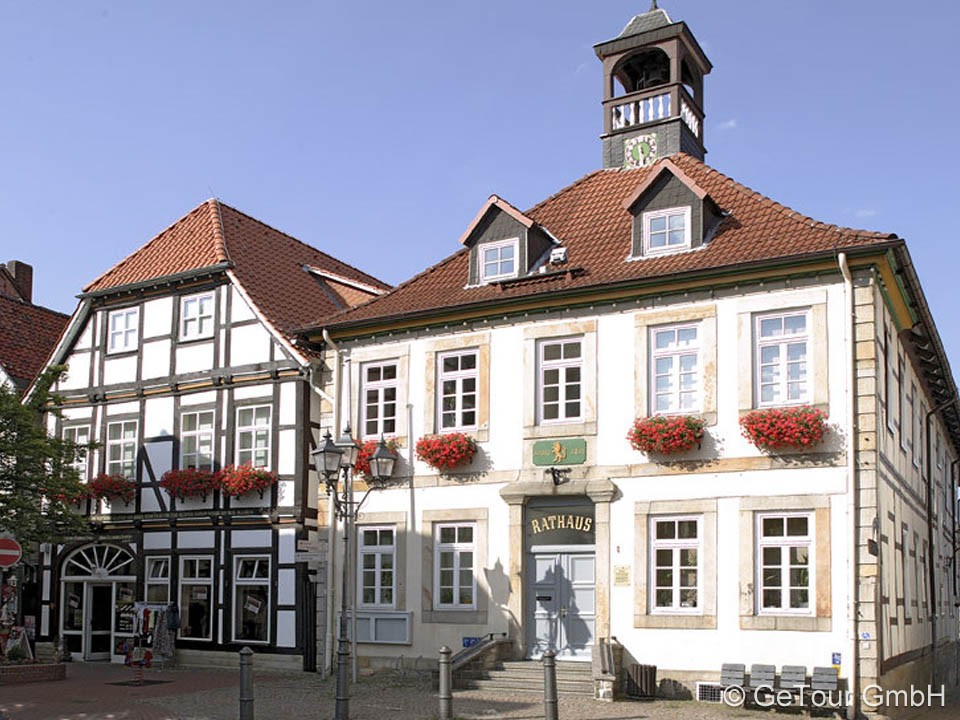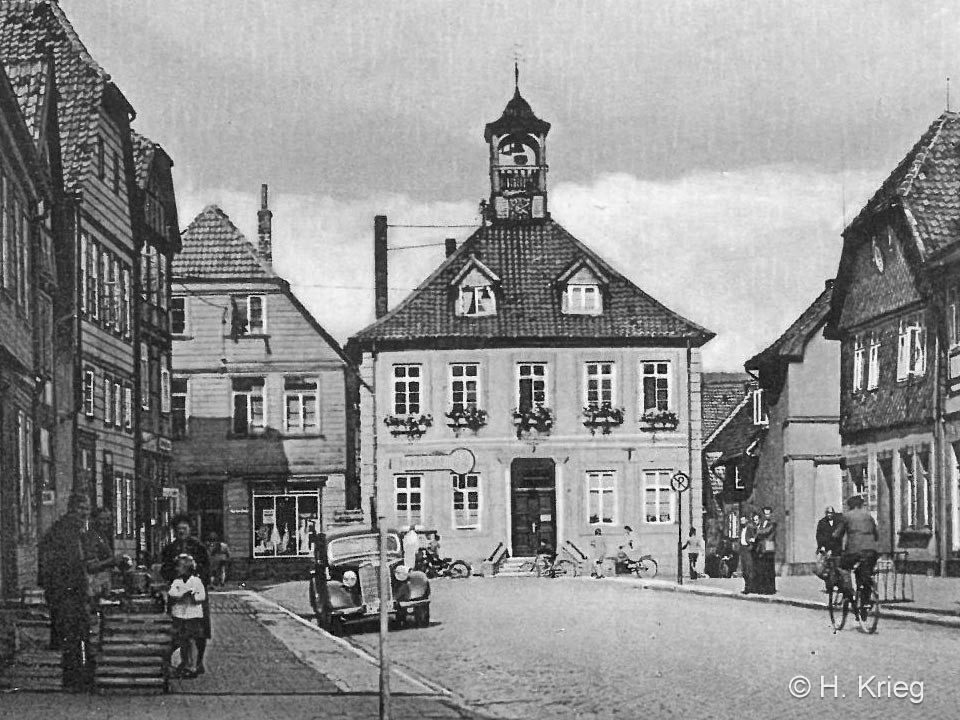Rotary St@dttour Bad Münder
About usTown Hall
Above the Town Hall´s entrance the year 1815 is inscribed as the year of dedication. However, this seems to be wrong as the completion year is 1817 and it can be proved that during spring 1816 this building was still in its planning phase. The historical documents of 1816 are describing the shabby structure (collapsing parts of the building) of the Münder Town Hall and thus, the town council was seeking state permission for a new building. The only fancy extra the town council was applying for was the small clock tower which originally dates back to the year 1639.
The town of Münder hosts the regional court of justice. As a visible sign in the old days the pillory was located where you can see the Söltjer Fountain today.
In its first years a pub was located in the ground floor and the first floor was used as a hotel and a festival hall. The very few administrative rooms of the town council were situated in the rear section of the premises. This was changed in 1919 when the town council requests all rooms of the building.

more informations
It can be proved that the Town Hall has existed since 1361. It is also called Kophus (department store). In the Medivial Ages, Bad Münder was known as a staple town, which means that merchants passing by were obliged to expose their goods for sale and to pay corresponding fees to the municipal treasury. Back in the day, Kophus and Town Hall often formed a unity. Certainly, the Kophus had only a few rooms available and in many cases it consisted of simple stalls only. When the Town Hall was knocked down in 1815/1816, a richly ornamented pediment was discovered with the year 1611 written on it.
The restaurant Ratskeller used to be a particularly popular meeting place for various organisations, e.g. the guilds, which met there for meetings and celebrations. According to the files of the Town Hall also club-ups, flag ceremonies and meetings of the Veterans' Association were regular events that took place in the restaurant. And it is pointed out that the most important Veterans’ events were, on the one hand, Sedan Day – on occasion of the German victory over the French troops on 2 September 1870 – and, on the other hand, birthday celebrations of the German emperors. On a regular basis, also concerts, theatre performances and other cultural events took place.
Occasionally, contrary opinions were expressed loudly in the restaurant. Legend has it that in 1878 two cigar makers from Verden and Lüchow complained about social ills and even insulted the monarchy. They held the view that the imperial society was against the opinion of the social-democratic will of the people. By the way, in 1878 the Anti-Socialist Law was issued, which prohibited the socialist and social democratic organizations any activities at Reich level.







